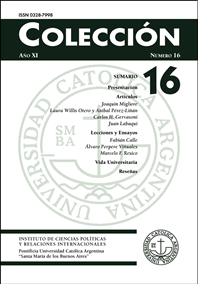The evolution of electoral systems in America: 1900-2004
Keywords:
Political Science, Comparative politics, Electoral systems, America, Electoral processesAbstract
This article presents the preliminary results of a project which search the historical evolution of the electoral systems of 21 American countries. The first section checks the literature on this issue and summarizes the project objectives. In the second section the authors describe the adopted perspective and the collected information. The third part offers a classification of the American electoral systems for the 1900-2004 period. In the fourth section the authors describe the historical evolution of the electoral systems, and conclude with a hypothesis which suggests the affinity between the authoritarian presidentialism and non proportional mechanisms. On the appendix the authors offers a summary of the information recollected by the project.Downloads
Download data is not yet available.
Downloads
Published
2017-11-23
How to Cite
Wills Otero, L., & Pérez-Liñán, A. (2017). The evolution of electoral systems in America: 1900-2004. Colección, (16), 47–82. Retrieved from https://e-revistas.uca.edu.ar/index.php/COLEC/article/view/760
Issue
Section
Research Articles
License










 Colección
Colección